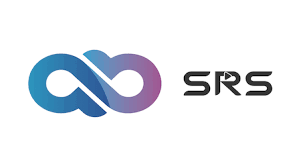
Docker部署 SRS rtmp/flv流媒体服务器
一、介绍
SRS(Simple Realtime Server)是一款开源的流媒体服务器,具有高性能、高可靠性、高灵活性的特点,能够支持直播、点播、转码等多种流媒体应用场景。SRS 不仅提供了流媒体服务器,还提供了适用于多种平台的客户端 SDK 和在线转码等辅助服务,是一款十分强大的流媒体解决方案。
SRS 在流媒体直播、点播、转码等方面的应用场景十分丰富:
-
在直播行业方面,SRS 能够支持多种流媒体协议(如 RTMP、HLS、RTSP、MPEG-TS 等)和传输模式,以及实时录制、转码等额外的功能,可以适用于直播监控、教学、演唱会等场景。
-
在点播方面,SRS 提供了多种点播服务协议(如 HTTP-FLV、HTTP-DASH、HTTP-HLS 等),并支持高并发和多种混合流媒体格式的传输。
-
在转码方面,SRS 支持多种常见音视频格式的转换和输出,例如 H.264, HEVC 等。
二、安装SRS

流媒体镜像docker-hub官方拉取
docker pull ossrs/srs
二、安装并启动SRS的容器
1. 不挂载目录或修改配置文件,docker镜像原始配置运行
docker run -it -d -p 1935:1935 -p 1985:1985 -p 8080:8080 --name srs ossrs/srs
2. 挂载目录,将容器内部所需配置文件copy到宿主机然后进行映射
2.1 宿主机新建两个目录
mkdir -p /root/srs/conf
mkdir -p /root/srs/objs
2.2 在前述运行的SRS容器中,把上述三个目录内的文件和目录全部拷贝到宿主机中。
# 把容器中的配置文件复制出来
docker cp -a srs:/usr/local/srs/conf /root/srs/conf
# 把容器中的数据文件复制出来
docker cp -a srs:/usr/local/srs/objs /root/srs/objs
2.2.1重新启动
docker run -it -p 1935:1935 -p 1985:1985 -p 8080:8080 --name srs --restart=always -v /root/srs/conf:/usr/local/srs/conf -v /root/srs/objs:/usr/local/srs/objs ossrs/srs
此时流服务器已经可以使用,如果需要自定义配置文件可继续按照下面步骤。
2.2.2 自定义配置文件
(仅供参考:具体去看官方配置文档 )
在 /root/srs/conf 创建自己的配置文件 srs.my.conf
# SRS 参考配置
listen 1935;
max_connections 1000;
srs_log_tank file;
srs_log_file ./objs/srs.log;
daemon on;
http_api {
enabled on;
listen 1985;
}
http_server {
enabled on;
listen 8080;
dir ./objs/nginx/html;
# 开启 https 支持,需要开放 8088端口
# https {
# enabled on;
# listen 8088;
# key ./conf/xxxx.key;
# cert ./conf/xxxx.crt;
# }
}
vhost __defaultVhost__ {
# http-flv设置
http_remux{
enabled on;
mount [vhost]/[app]/[stream].flv;
hstrs on;
}
# hls设置
hls {
enabled on;
hls_fragment 1;
hls_window 2;
hls_path ./objs/nginx/html;
hls_m3u8_file [app]/[stream].m3u8;
hls_ts_file [app]/[stream]-[seq].ts;
}
# dvr设置
dvr {
enabled off;
dvr_path ./objs/nginx/html/[app]/[stream]/[2006]/[01]/[02]/[timestamp].flv;
dvr_plan segment;
dvr_duration 30;
dvr_wait_keyframe on;
}
# rtc 设置
rtc {
enabled on;
bframe discard;
}
# SRS支持refer防盗链:检查用户从哪个网站过来的。譬如不是从公司的页面过来的人都不让看。
refer {
# whether enable the refer hotlink-denial.
# default: off.
enabled off;
# the common refer for play and publish.
# if the page url of client not in the refer, access denied.
# if not specified this field, allow all.
# default: not specified.
all github.com github.io;
# refer for publish clients specified.
# the common refer is not overrided by this.
# if not specified this field, allow all.
# default: not specified.
publish github.com github.io;
# refer for play clients specified.
# the common refer is not overrided by this.
# if not specified this field, allow all.
# default: not specified.
play github.com github.io;
}
# http 回调
http_hooks {
# 事件:发生该事件时,即回调指定的HTTP地址。
# HTTP地址:可以支持多个,以空格分隔,SRS会依次回调这些接口。
# 数据:SRS将数据POST到HTTP接口。
# 返回值:SRS要求HTTP服务器返回HTTP200并且response内容为整数错误码(0表示成功),其他错误码会断开客户端连接。
# whether the http hooks enable.
# default off.
enabled on;
# 当客户端连接到指定的vhost和app时
on_connect http://127.0.0.1:8085/api/v1/clients http://localhost:8085/api/v1/clients;
# 当客户端关闭连接,或者SRS主动关闭连接时
on_close http://127.0.0.1:8085/api/v1/clients http://localhost:8085/api/v1/clients;
# 当客户端发布流时,譬如flash/FMLE方式推流到服务器
on_publish http://127.0.0.1:8085/api/v1/streams http://localhost:8085/api/v1/streams;
# 当客户端停止发布流时
on_unpublish http://127.0.0.1:8085/api/v1/streams http://localhost:8085/api/v1/streams;
# 当客户端开始播放流时
on_play http://127.0.0.1:8085/api/v1/sessions http://localhost:8085/api/v1/sessions;
# 当客户端停止播放时。备注:停止播放可能不会关闭连接,还能再继续播放。
on_stop http://127.0.0.1:8085/api/v1/sessions http://localhost:8085/api/v1/sessions;
# 当DVR录制关闭一个flv文件时
on_dvr http://127.0.0.1:8085/api/v1/dvrs http://localhost:8085/api/v1/dvrs;
# 当HLS生成一个ts文件时
on_hls http://127.0.0.1:8085/api/v1/hls http://localhost:8085/api/v1/hls;
# when srs reap a ts file of hls, call this hook,
on_hls_notify http://127.0.0.1:8085/api/v1/hls/[app]/[stream]/[ts_url][param];
}
}
通过自定义配置文件启动 (未尝试,大家可以看看配置文件是否可以使用,大多数还是使用第一种方式)
docker run -it -p 1935:1935 -p 1985:1985 -p 8080:8080 --name srs --network src_network
--restart=always -v /root/srs/conf:/usr/local/srs/conf -v /root/srs/objs:/usr/local/srs/objs ossrs/srs ./objs/srs -c conf/srs.my.conf
要想外网可以访问,需要打开1935、8080、1985 三个端口号(云服务安全组)
3. 通过8080端口可以访问srs中心

三、命令行FFmpeg (局域网的摄像头推流到云服务上部署的流媒体服务器)
ffmpeg -i "rtsp://admin:Pc@12138@192.168.7.34" -c:v libx264 -c:a aac -f flv rtmp://192.168.14.93/live/stream

使用vlc 或者前端来进行视频播放


转换为flv播放


更多推荐
 已为社区贡献2条内容
已为社区贡献2条内容







所有评论(0)